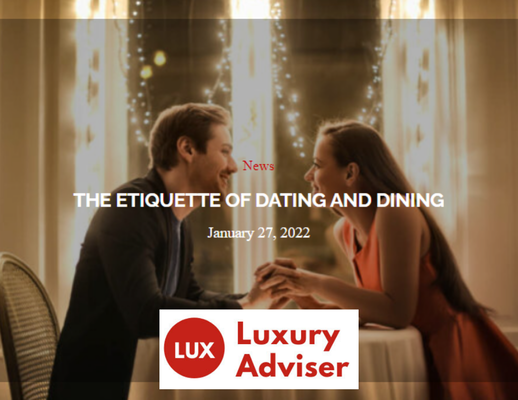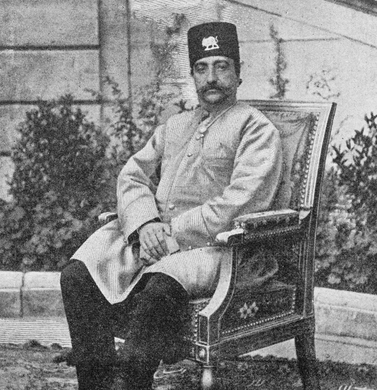|
The world of Argentine social and business etiquette is based on the commonly accepted styles of the Western world, keeping some of its considerations. This is due to the significant influence of Italian, Spanish, Turkish, Greek, and neighbouring European countries’ immigrants that have populated Argentina, along with the indigenous peoples, over the centuries.
Mabel has over 30 years of global experience in hospitality, studying and working in Spain, Wales and England, acting as general manager of a hotel located in Manchester, teaching in schools and universities in Argentina and USA, and developing and coaching in wine appreciation. Since 2015 she has been dedicated to teaching etiquette and protocol programs from social to corporate entities. Mabel is a certified pre-school teacher - ECEA, hotel administrator - Universidad de Morón, Sommelier - Gato Dumas School of Gastronomy, International Diplomacy - University of London, International Relations, Personnel Selection, Customer Service and Service Quality - University of Buenos Aires, - Buenos Aires, UBA and Ceremonial and Comparative Cultures at Cidec Universidad De Cuyo.
Contact Mabel di Michele from MdM Ceremonial, please visit www.mdmceremonial.com.ar For more information, please visit Linktree/mdm_ceremonial
0 Comments
In June 2018, Australia’s very own High Commissioner to the United Kingdom, the then titled Honourable Alexander Downer, and his Twitter faux pas splashed over the Australian news. What did he do that made Aussie headlines? Two weeks after officially leaving his post as High Commissioner, he used his ‘business’ account to tweet support to his daughter, Georgina Downer, who was forging a career in Australian politics. The secretary of Foreign Affairs and Trade Department, Frances Adamson, stated that Alexander Downer “mistakenly used the account instead of his own” stated the Adelaide Independent New Indaily, Friday, Jun 1, 2018. The rapid evolution of mobile technology, together with the emergence of social media, has significantly changed, to communicating instantly, letting millions know facts, figures, actions, reactions, and interactions. How can social media and diplomacy work hand-in-hand? Modern public diplomacy is used for the promotion and enhancement of a countries profile, critical humanitarian and consular events, and the explanation of economic developments. The use of public diplomacy allows for open, transparent, and accountable dialogue, which enhances friendly relations, monitors events, gauges public sentiment, gathers information, and explains government policies and programs. However, the Australian government states in an Administrative Circular of July 2014 that social media does not replace traditional avenues of announcements. It was noted that in 2009 the United States Government piloted a program that used social media outlets such as Twitter and Facebook in the Middle East, “increasing citizen engagement and civic participation”. Also, that year the Israeli Foreign Ministry said they wanted to use social media to “focus less on Palestinian issues and more on the Iranian threat.” (Zhang & Fahmy et al., 2015). For those in the diplomatic or government services that are tweeting, blogging, and using social media to get their word across to the masses through real-time channels, what guidelines do they follow? Guiding them is the Department of Foreign Affairs and Trade’s Ethics, Integrity and Professional Standards Policy Manual and the Department of Communications and Parliamentary Branch. Which begs the question, what can we do as individuals that are not working for the government department? How can we use social media mindfully? Here are four tips for using social media to your advantage: “Is my social media account private?” Whether you have a public or private profile on social media, you are still leaving a digital footprint. Whatever you post in word, photo, video, audio, or emoji can be screen-grabbed and passed around quickly, without your knowledge. “What are my intentions today?” Post information you want people to know and won’t regret one week, one year, or ten years from posting. Always post positively and professionally. Using courtesy is the best practice today. “How can I keep safe?” Keep personal information, such as your address, birth date, etc. off social media as hackers are constantly harvesting and farming for your personal information. “What content will I display and post today?” Be wise with photos, audio, and videos you take of other people. Try to pixelate, blur or cut people out the best you can unless you have their consent to publish. Consider your comments and the emojis that you attach to your comments. Emojis have a powerful effect as non-verbal cues. Adding emojis to social posts could bring confusion in interpretation. “Ensure Intercultural Intelligence” Symbols, emojis, illustrations, metaphors, and even the contextual meaning of words can be interpreted and experienced differently across countries and cultures. Mind your social media had a borderless reach and can be resent by anyone who has received it directly or indirectly. Make sure that you master intercultural intelligence so that your message is “global proof” and will not cause embarrassing situations for you and the entity that you are representing. May you use social media wisely and mindfully. Article published by Protocol Today >> When You Would Hire a Personal Brand Coach: 5 Questions You Should Ask I love what I do for work; I help people stand out! My expertise is with modern business etiquette, personal brand building, and reputation self-management–I'm on a mission to guide people on investing in their professional selves. Over the years, it occurred to me that the term "building your brand" no longer refers to what one does to promote a business. Instead, to my mind, it means creating a personal identity and image that matches how people think of you. Like it or not, you as an individual are now expected to construct a brand around your unique traits. Amazon's Jeff Bezos said it best, "Your brand is what other people say about you when you're not in the room." Now, I want you to picture who you were ten years ago. Thanks to your cell cycles, your skin is different, your hair continues to grow, and overall you have physically changed because your cell cycle determines the inevitable process of aging. The good news is that your mind continues to develop. Your thoughts, feelings, and beliefs are influenced by what you have learned, seen, and heard. Yet, are you aware of this transformation? And, who have you become? How would you describe yourself today? The trouble is that when it comes to re-branding yourself, there are many moving parts, and you often find that you have to hire many coaches to achieve the results you want–It can be overwhelming. But, what if you could hire just one business to help guide you along the way? Where should you start, and what are the right questions to ask? Lucky for you, I've devised five questions you should ask yourself to know whether you're ready to work with a mission driven personal brand coach like me. #1: Where does your reputation stand today? Reputations are changeable. They can go from being significant to the polar opposite in an instant. So my first suggestion is what I feel is the most important if you take a few moments to dig into your digital and in-person presence. Here is where your use of humility kicks in; what is your reputation like today? Now, if you want to get answers, ask those around you who you know will give you an unbiased truth. Then, if you know your reputation can be more refined, you're ready to work with a coach. #2 - How can you elevate your presence? There are many aspects to developing your persona into one that's sophisticated, bold, composed, a thought-leader, etc., a presence that transcends your previous self. Of course, this takes time and patience to generate, but it's worth doing. Determine your outlets; where are you seen? Think about online and in-real-life. These platforms require consistency with your messaging. As a woman in today's world, there are higher expectations with self-presentation. Keeping up appearances can be overwhelming and what a personal brand coach does is help you filter through the noise to assist you in creating a defined presence. #3 - What does it take to start? Do you know what your mission is in life? What about your vision for a better world? Furthermore, is there a philosophy that resonates with how you approach everything you do? Identifying your purpose is crucial to your brand; putting words to what you think and feel about life. If you’re having trouble figuring out your answers, a personal brand coach will step in and assist you in narrowing it down: These are the first steps to help you get started. #4 - Who do you trust? I believe in building long-term relationships, ones that withstand the ups and downs of what life throws at you. When sharing your time with a personal branding coach, you want to make sure it's worth your while. You will ideally be working with them for years to come. A great way to start is by having a virtual or real-life consultation which the coach should navigate. If you are confident in their approach to coaching, you've seen great reviews, like their credentials, and respect how they consistently show up; you should feel confident in starting sessions with them. They should feel like your #1 fan, a cheerleading squad for just you, and if not, then you have your answer. #5 - How much are you willing to invest? When planning to work with a personal brand coach, you must think about the short-term goals and the long-term goals you have. Daymond John, Investor on the series Sharktank, preaches that you should write down your goals every morning and check them every evening. If you don't write them down, they will never manifest–there'll be no point in hiring a personal branding coach. And so, you must think BIG; write everything down and be very detailed. Your investment corresponds with you wanting this to work: Your re-brand is about you, and your coach creates a roadmap for you to get there. So what is your brand worth to you? Well, that's a question only you can answer. In conclusion, you can take control of how you present yourself to the world through your words, actions, and digital presence. I suggest you think of the one person in the world you would like to have a face-to-face conversation with and know when that day comes–you are ready. Perhaps, you're going through a life-changing experience. You’ve changed careers, or switched industries… Maybe you're looking to elevate your reputation with what you're doing now. Whatever the reason is, one thing is for sure, you want to change; you want to be intentional with your approach; and with the proper guidance, you'll need the right person around you to make it happen.
Eating out when dating is a thrill and can be very romantic however choosing the wrong foods can dampen the night and cause awkwardness. Dining whilst dating can be a forecast into the future of your date’s habits and foibles and yours as well. The Lady and the Tramp and Pretty Woman Cast your mind to the Disney movie cartoon the Lady and the Tramp, in the famous scene where two dogs eat a sloppy spaghetti dish end up kissing! Romantic-yes, messy-yes. How about the famous scene in Pretty Woman where Julia Roberts attempts to wrestle with that slippery oyster! We have all been there. Here are some points in maintaining elegance during your date night. Dining Etiquette Don’ts Your date has stated they will pay for the meal, nice one. This event is not the place to be choosing foods that you've never heard of or eaten before. Leaving plates full of uneaten food may not impress your date and is a waste of their hard-earned cash. Don't start drinking too much, too soon. You could be revealing too much about yourself before you know it or can recall. Order lighter drinks first, whilst nibbling on finger foods moving onto wines and water for the main course. Your date night is not the place to start using chopsticks if you have never used them before or if you're freshly manicured and you're about to eat a Middle Eastern dish with your fingers, never mind knowing which hand to use. Skip the coffee course unless you have a strong menthol solution to combat ‘coffee breath’. Pick herbal teas or an aperitif to end the night. Dining Etiquette Do’s Avoid messy foods that may stain your clothing and have you spending more time in the restroom than with your date these include most kinds of saucy pasta and curries. Choose foods that are easy to eat and you're able to control food with your fork and knife, this will help you concentrate on the things that matter. Easy to eat cuisines such as chicken parmigiana, risotto or salads. Seafood is a chic item to order, even better when your date is paying! Opt for, if you are feeling confident eating oysters using a seafood fork or splicing a boned fish with a fish knife. Select foods that won’t upset your stomach and make you feel uncomfortable and shift your focus off your date. Avoid overly creamy items, meat cooked rare or tartare, fermented vegetables or legumes or pungent fish. ‘Be Prepared’ as a Scout Choosing wisely when you go on date will save you from embarrassing moments or having your date second guess their evening with you. Go prepared and ready, this will keep anxiety to a minimum, will have you enjoying your night and ready for the next date. Article published by Luxury Advisor >> Why is there an emphasis on those who work for the government, an embassy, or mission to see the need to attend an etiquette course? Ray S. Leki from Foreign Service Institute, U.S. Department of State states, “the rules and processes of diplomatic protocol are based in pragmatic thinking, common sense, and good manners.” We know that etiquette is about politeness and courtesy, but not all are diplomats working for embassies or governments. Do I need to know or even show diplomacy in my everyday life? The answer, in short, is yes. Diplomacy Diplomacy is the art of conducting, communicating, negotiating, and fine-tuning mutual relations of people, organisations and countries. Diplomacy can be used for non-adversarial interactions to promote one’s or group interests or critical events and defuse tensions. The use of diplomacy allows for open, transparent dialogue, which enhances friendly relations as long as possible. But first, let’s look at two etiquette faux pas that has occurred on an international scale. Let’s take a walk-through history….
Etiquette
Based on historical evidence, Queen Victoria was fascinated with those from different countries and enjoyed cultural differences. No doubt she would have used her etiquette not to embarrass her guest, The Shah of Iran; she showed the quality of adaptability and accepted the partly eaten asparagus. Emperor Akihito shows compassion towards Taro Yamamoto by taking the piece of paper. Whether he read it or not was another question. The emperor calmly took the letter and gave the handwritten "washi" paper to his chief steward. Conclusion Both Queen Victoria and Emperor Akihito could have shown nonchalance towards the Shah of Iran or Taro Yamamoto and moved on very quickly. However, they used their etiquette and diplomacy to benefit everyone, not just themselves. Maura Graber – Etiquette Historian stated that “protocol and etiquette is under the umbrella of diplomacy….as humanity evolves, diplomacy evolves along with it. Diplomacy has to evolve for society to keep going… it's very cyclical. As the modern era brings in modern dilemmas, etiquette and diplomacy have to change to confront those modern issues.“ |
AuthorElizabeth Soos Archives
August 2025
Categories |
|
CONTACT US Submit Your Enquiry |










 RSS Feed
RSS Feed

